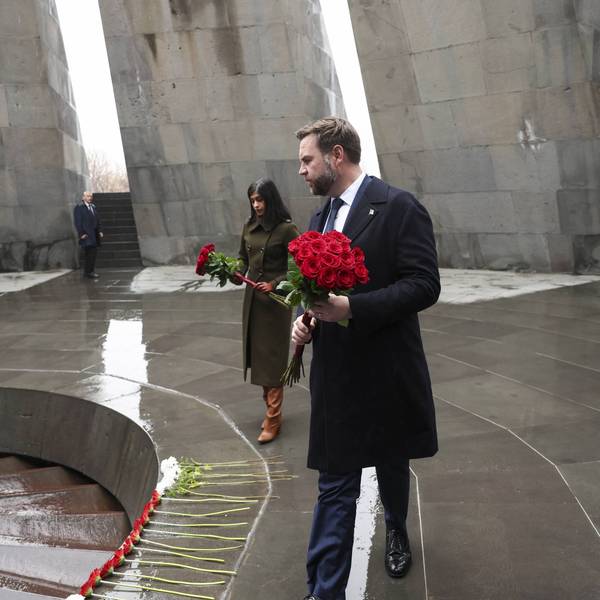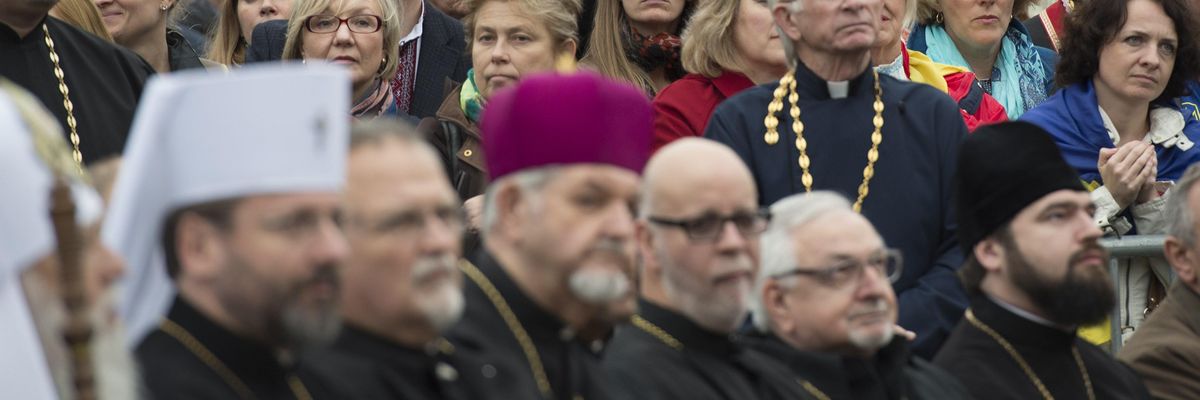Putin's invasion of Ukrainian territory and his rejection of Ukraine legitimacy as an independent nation has made that country an unwilling pawn in the conflict between the U.S., its European partners and Russia. As expected, Putin responded to the sanctions imposed by Biden with threats of retaliation, which set the stage for conflicts of unpredictable but probably ominous consequences. Ukrainian civilians, mainly children, will carry the biggest burden.
Although there are obvious historical ties with the Ukrainian people, Russia's continuous claims of brotherly relations with Ukraine dismiss the lasting trauma created by the Soviet Union during the Holodomor Great Famine that lasted from 1932 to 1933.
On July 12, 2021, Russian President Vladimir Putin wrote an article "On the Historical Unity of Russians and Ukrainians," in which he stressed the powerful ties uniting both countries. A one-sided, rambling historical description of the special relationship between them, the article stated that, "In 1922, when the USSR was created, with the Ukrainian Soviet Socialist Republic becoming one of its founders, a rather fierce debate among the Bolshevik leaders resulted in the implementation of Lenin's plan to form a union state as a federation of equal republics. The right for the republics to freely secede from the Union was included in the text of the Declaration on the Creation of the Union of Soviet Socialist Republics and, subsequently, in the 1924 USSR Constitution. By doing so, the authors planted in the foundation of our statehood the most dangerous time bomb, which exploded the moment the safety mechanism provided by the leading role of the CPSU (Communist Party of the Soviet Union) was gone, the party itself collapsing from within."
Although there are obvious historical ties with the Ukrainian people, Russia's continuous claims of brotherly relations with Ukraine dismiss the lasting trauma created by the Soviet Union during the Holodomor Great Famine that lasted from 1932 to 1933. According to a United Nations statement signed by 25 countries in 2003, 7-10 million people died during that famine.
Since 2006, the Holodomor famine carried out by the Soviet government has been called a genocide by Ukraine and 15 other countries. For many years, the Soviet Union even denied the existence of the famine. Russia dismisses that word, while calling genocide--without any serious evidence--today's loss of lives in Ukraine's separatist region. One more evidence that language belongs to the powerful.
Some scholars believe that Joseph Stalin planned the famine to crush Ukraine's independence movement; others believe that this man-made famine was a consequence of the need for rapid Soviet industrialization and the forced collectivization of the Ukrainian inhabitants of the Soviet Union.
Malnutrition and disease decimated the population. British historian R.W. Davies concluded that in 1932-1933 there were 1.2 million cases of typhus and 500,000 cases of typhoid fever. According to historian Stephen G. Wheatcroft, many official statistics from this period were repressed, and many deaths were unregistered.
In 1945, the Ukrainian Soviet Socialist Republic became one of the 51 United Nations founding members. On July 16, 1990, the parliament adopted the Declaration of State Sovereignty of Ukraine, establishing the principles of self-determination, democracy, independence, and the priority of Ukrainian law over Soviet Law. The referendum of December 1, 1991, approved the Act of Independence with 92 percent of the votes. Ukraine finally became an independent nation.
In his article, President Vladimir Putin wrote, "We respect the Ukrainian language and traditions. We respect Ukrainians' desire to see their country free, safe and prosperous." An he concluded, "And I will say one thing--Russia has never been and will never be 'anti-Ukraine.' And what Ukraine will be--it is up to its citizens to decide." These are lofty words and feelings, betrayed now by the brutal invasion of that country. If history teaches us something, it is that the ghosts of Holodomor will continue to haunt Mr. Putin.




